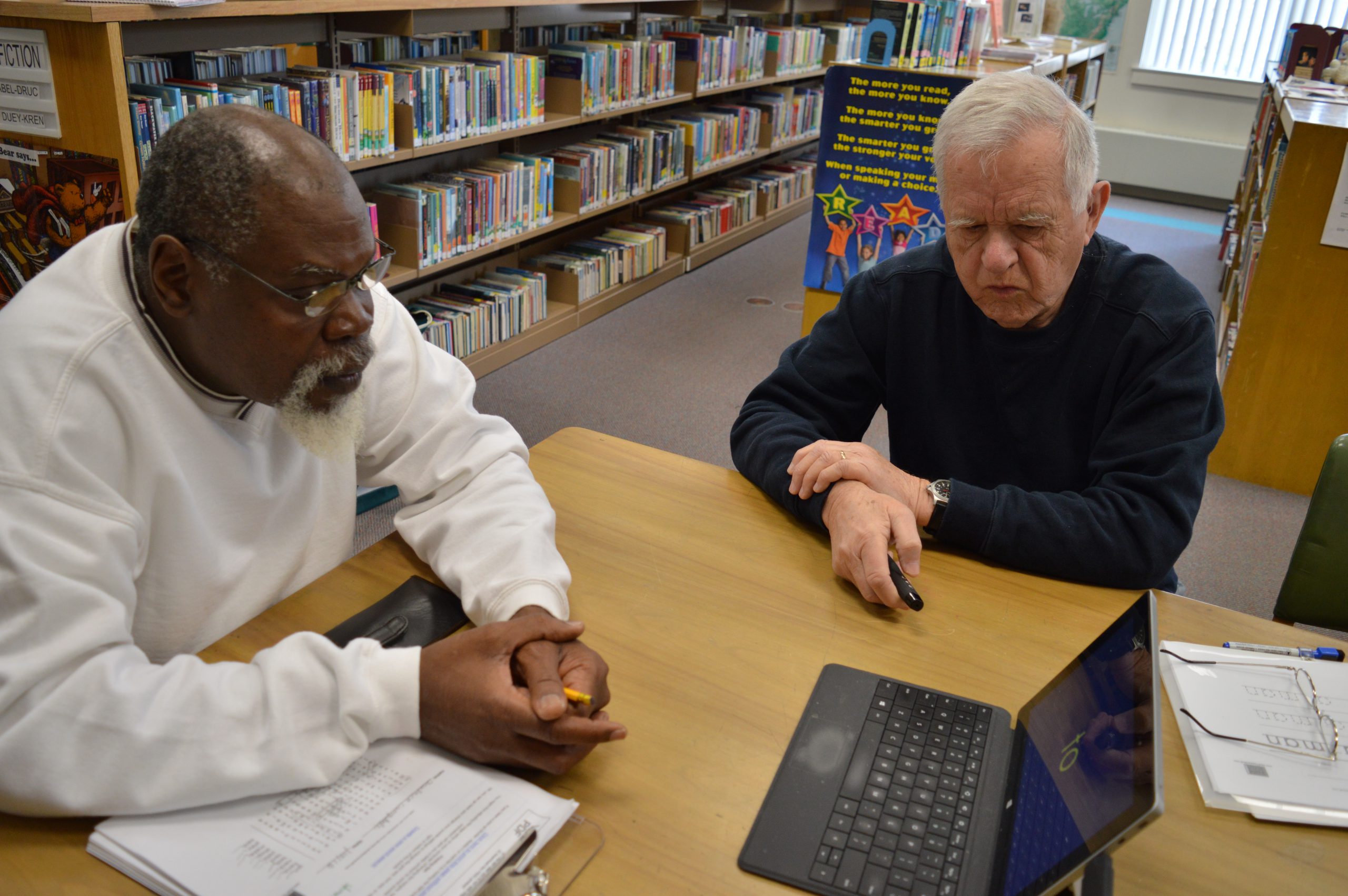sounds good
Promoting Literacy in Greater New Haven

Part 2 of 3
In this second in a series of three blogs profiling the nonprofit organization Literacy Volunteers, Meghen Fitzgibbons, ESOL (English to Speakers of Other Languages) Program Manager at the New Haven affiliate, talks about the programs offered at to promote literacy in New Haven.
AccentAccurate: What classes are offered for literacy in greater New Haven?
Meghen Fitzgibbons:
1. Basic Literacy classes – Classes for native speakers of English who want to improve their reading skills. Classes are offered at various levels, from basic literacy to advanced readers.
The tutor-to-student ratio in these classes is 1:4, set by the Connecticut State Department of Education. The majority of the Basic Literacy classes take place in our main office, Monday through Thursday. There are morning classes as well as evening classes, and students typically attend class twice a week.
2. English for Speakers of Other Languages (ESOL) – The majority of ESOL classes take place in the community. We partner with a variety of community organizations promoting literacy in New Haven, Hamden, and Branford, which in turn host our ESOL classes. These organizations include Junta, IRIS, Gateway Community College, New Haven Adult Ed, Branford Adult Ed, Yale Health, and local libraries.
AA: Once someone decides to sign up for ESOL classes, what does the process look like?
MF: There’s an initial intake that includes a screening. We try to get a sense of the student’s English level and goals. This information is used to assign the student to a class that is suited for him or her.
AA: How many students and how many tutors are typically in a class?
MF: We have several different models of ESOL tutoring. In general, however, we try to keep a tutor-to-student ratio of 1:4 or 1:5. The exact model depends on the specific site. We might have one volunteer tutor working with four students or two volunteers working with a group of 8-10 students.
In some locations, the student body is small. In that case, we might offer one class with three tutors. So, the three literacy in New Haven volunteers might start off the class together, and then split out into three groups (beginner, intermediate, and advanced).
AA: How long are classes, and how frequently are they held?
MF: Generally speaking, classes are held twice a week and are two hours long. Adult ed classes typically run for 2½ hours. Sometimes with beginner classes, two hours can be too long, so beginner classes may run for 1½ hours.
AA: What is the student body like?
MF: The student body in the New Haven classes is really remarkable. Students come from very diverse backgrounds in terms of the countries they come from and the languages they speak. Last year we had students from 65 different countries just in the New Haven affiliate! It’s not uncommon to have four or even eight different countries and languages represented in a single class.
New Haven attracts many people from international backgrounds who come here to attend college or university, to complete postdoctoral programs, or for job opportunities. In addition, refugees also come to New Haven for refugee resettlement programs such as IRIS.
The only ESOL class that is homogenous in terms of the student background is Junta, which specifically serves the Latino community, mostly from Central and South America. The participants in these groups tend to speak Spanish, although everyone is welcome.
AA: How do students hear about Literacy Volunteers?
MF: Some students find Literacy Volunteers through online searches. Others may hear about us through word of mouth, or through a referral from another agency. We also advertise our classes by sending out flyers and calendars. Some students have shared that when they go through U.S. Customs and Immigration, they receive information about how to access services in their community, including ESL classes promoting literacy in the New Haven area.
AA: Can students meet with tutors one on one?
MF: In Basic Literacy, there is a lot of one-to-one instruction. In ESOL classes, however, most of the instruction is done in a group format. Because our program is so large, we seldom if ever offer one-on-one ESOL tutoring. At times, though, one-to-one instruction may occur due to special circumstances or due to a very small student body in a particular area. Usually these are short-term arrangements.
Stay tuned for our final blog on Literacy Volunteers, in which ESOL Program Manager Meghen Fitzgibbons talks about ways you can become involved and support literacy in greater New Haven.

If you’re looking for help with accent and pronunciation, AccentAccurate offers a variety of coaching programs to help with accent awareness and modification. Please visit us at accentaccurate.com/services to see which of our programs is best suited for you!



